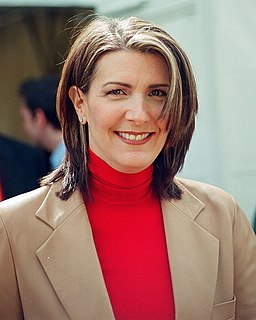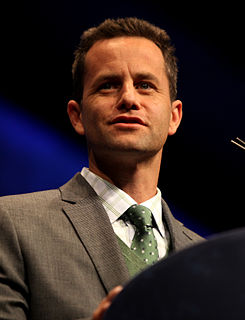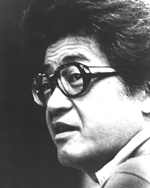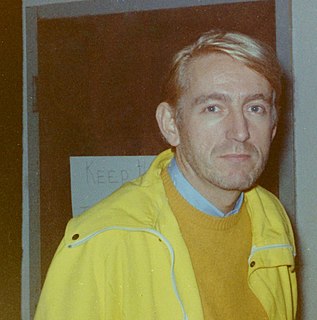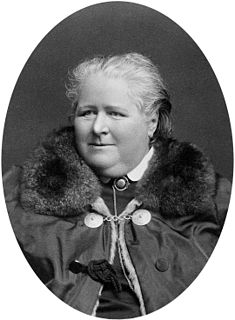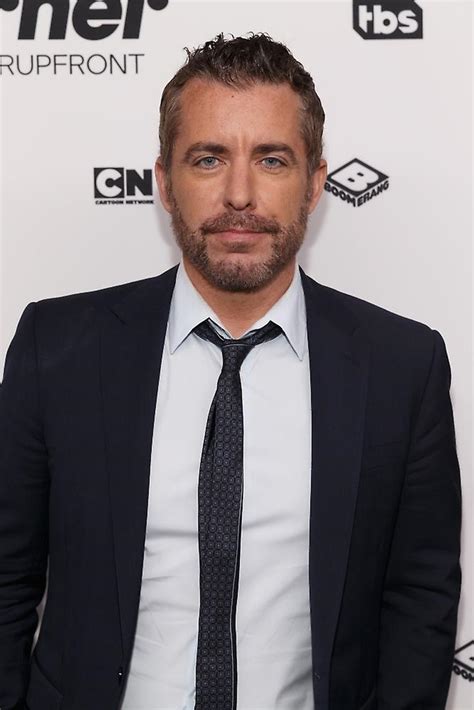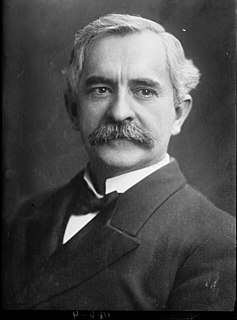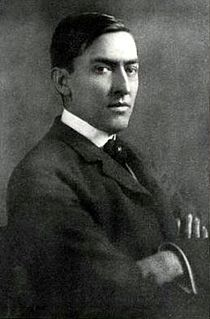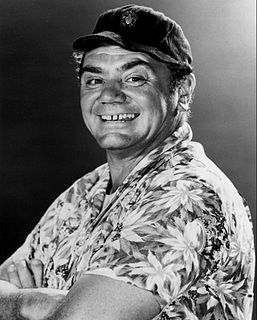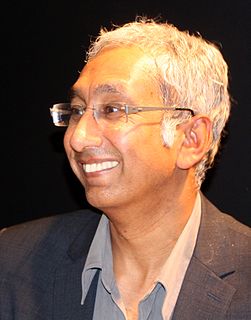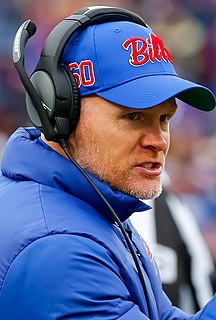Top 1200 Moral Compass Quotes & Sayings - Page 16
Explore popular Moral Compass quotes.
Last updated on December 19, 2024.
Health is the working man's fortune, and he ought to watch over it more than the capitalist over his largest investments. Health lightens the efforts of body and mind. It enables a man to crowd much work into a narrow compass. Without it, little can be earned, and that little by slow, exhausting toil.
I have learned that there is no failure in running, or in life, as long as you keep moving. It's not about speed. And gold medals. It's about refusing to be stopped. you might find that one particular direction proves difficult, but there are many directions on a compass. Infinite, in fact. As long as you keep searching, you'll find your winning way.
The Shadow is a moral problem that challenges the whole ego-personality, for no one can become conscious of the shadow without considerable moral effort. To become conscious of it involves recognizing the dark aspects of the personality as present and real. This act is the essential condition for any kind of self-knowledge, and it therefore, as a rule, meets with considerable resistance. Indeed, self-knowledge as a psychotherapuetic measure frequently requires much painstaking work extending over a long period of time.
We all have our convictions formed by different things and mine are informed by my faith.... They're formed by the word of God, and I found that to be an anchor for me, a compass, and a guide for me. When people start bullying one another and calling each other names for those different convictions, then I think you get into problems.
You do just have to go back to moral philosophy and you've got to say, okay, there is greed, people do want more and more, but then what restrains them and what restrained them in the past was a view of life in which one's satisfaction wasn't the most important thing, that you just, you needed enough and you could say, "Enough is enough." Maybe religion will get you there, maybe just classic moral philosophy, but you have to have some of that, or else you're always on the gravy train.
Blind obedience is itself an abuse of human morality. It is a misuse of the human soul in the name of religious commitment. It is a sin against individual conscience. It makes moral children of the adults from whom moral agency is required. It makes a vow, which is meant to require religious figures to listen always to the law of God, beholden first to the laws of very human organizations in the person of very human authorities. It is a law that isn't even working in the military and can never substitute for personal morality.
What really worries me is that those who are in positions of power are not really affected by what we are writing. In the moral dialogue you want to start, you really want to involve the leaders. People ask me: "Why were you so bold as to publish A Man of the People? How did you think the Government was going to take it? You didn't know there was going to be a coup?" I said rather flippantly that nobody was going to read it anyway, so I wasn't likely to be fired from my official position. It's a distressing thought that we cannot engage our leaders in the kind of moral debate we need.
[Lighting a cigarette] Well, I'm not here to impinge on anybody else's lifestyle. If I'm in a place where I know I'm going to harm somebody's health or somebody asks me to please not smoke, I just go outside and smoke. But I do resent the way the nonsmoking mentality has been imposed on the smoking minority. Because, first of all, in a democracy, minorities do have rights. And, second, the whole pitch about smoking has gone from being a health issue to a moral issue, and when they reduce something to a moral issue, it has no place in any kind of legislation, as far as I'm concerned.
The human instinct for self-preservation is strong. I know, because mine pulls at me, too, like the needle on a compass. And everybody - I've been reading some philosophy - everybody seems to agree that the instinct and responsibility of all humans is to take care of themselves first. You have the right to self-defense. You have the right to survive, if you can.
Our … reduceth to a single origin and relateth to a single , and maketh contraries to coincide so that there is one primal foundation both of origin and of end. From this coincidence of contraries, we deduce that ultimately it is divinely true that contraries are within contraries; wherefore it is not difficult to compass the knowledge that each thing is within every other.
The Boy Scouts of America stands for a set of principles. These principles have a lot of staying power. The values you learn as a Scout are like a compass. They can help you find your way through difficult and sometimes unchartered terrain. The principles of Scouting give you a sense of what's important. I feel I owe the Boy Scouts a great deal, both personally and professionally.
A tower of illusion, all of it, made of illusory bricks and full of holes. If life were made up only of imporant things, it really would be a dangerous house of glass, scarcely to be handled carelessly. But everyday life was exactly like the headlines. And so everybody, knowing the meaninglessness of existence, sets the centre of his compass at his own home.
I join cordially in admiring and revering the Constitution of the United States, the result of the collected wisdom of our country. That wisdom has committed to us the important task of proving by example that a government, if organized in all its parts on the Representative principle unadulterated by the infusion of spurious elements, if founded, not in the fears & follies of man, but on his reason, on his sense of right, on the predominance of the social over his dissocial passions, may be so free as to restrain him in no moral right, and so firm as to protect him from every moral wrong.
As a moral and social institution, a weekly rest is invaluable. It is a quiet domestic reunion for the bustling sons of toil. It ensures the necessary vacation in those earthly and turbulent anxieties and affections, which would otherwise become inordinate and morbid. It brings around a season of periodical neatness and decency, when the soil of weekly labour is laid aside, and men meet each other amidst the decencies of the sanctuary, and renew their social affections. But above all, a Sabbath (one day of rest in seven) is necessary for man's moral and religious interests.
The four points of the compass be logic, knowledge, wisdom and the unknown. Some do bow in that final direction. Others advance upon it. To bow before the one is to lose sight of the three. I may submit to the unknown, but never to the unknowable. The man who bows in that final direction is either a saint or a fool. I have no use for either.
The reduction of the universe to the compass of a single being, and the extension of a single being until it reaches God - that is love. Love is the salute of the angels to the stars. How sad is the heart when rendered sad by love! How great is the void created by the absence of the being who alone fills the world.
If animals are no longer quite outside the moral sphere, they are still in a special section near the outer rim. Their interests are allowed to count only when they do not clash with human interests. If there is a clash - even a clash between a lifetime of suffering for a nonhuman animal and the gastronomic preference of a human being - the interests of the nonhuman are disregarded. The moral attitudes of the past are too deeply embedded in our thought and our practices to be upset by a mere change in our knowledge of ourselves and of other animals.
Ultimately, strong branding is not just a promise to our customers,to our partners, to our shareholders and to our communities;it is also a promise to ourselves... in that sense, it is about using a brand as a beacon, as a compass, for determining the right actions, for staying the course, for evolving a culture, for inspiring a company to reach its full potential.
When we stopped to rest and Tony tried to figure out what was wrong with his compass, I asked him what he thought it was about orchids that seduced humans so completely that they were compelled to steal them and worship them and try to breed new and specific kinds of them and then be willing to wait for nearly a decade for one of them to flower.
So immense are the claims on a mother, physical claims on her bodily and brain vigor, and moral claims on her heart and thoughts, that she cannot ... meet them all and find any large margin beyond for other cares and work. She serves the community in the very best and highest way it is possible to do, by giving birth to healthy children, whose physical strength has not been defrauded, and to whose moral and mental nature she can give the whole of her thoughts.
So often times we see these films that erode human dignity...films that deny the transcendent moral order of the moral universe. They're always eroding natural affections for families. Fathers betray their commitments, children's are always portrayed as brats and disobedient, marriages are always in crisis and struggle. I think (for) most of us, that's not the lives we live. We're always being challenged, we always have challenges but we love our families, we love our spouse, we love our children.
In some socialist states well-performed work is rewarded with moral stimulants instead of material ones. However, the moral stimulants cannot be explained by materialistic philosophy. It is the same case with the appeals for humanism, justice, equality, freedom, human rights, and so forth, which are all of religious origin. Certainly, everybody has the right to live as he thinks best, including the right not to be consistent with his own pattern. Still, to understand the world correctly, it is important to know the true origin of meaning and of the ideas ruling the world.
When we think of God, we are apt to think of Him in human form. In the Epiphanies of the Old Testament God revealed Himself to Joshua and others in human form. He puts Himself within the compass of our highest conception, in order that He may make Himself real to us in His love and sympathy and power.
We need strong Christians who can persevere against hardship, who can sustain hope through tragedy, who can lift others by their example and their compassion, and who can consistently overcome temptations. We need strong Christians who can make important things happen by their faith and who can defend the truth of Jesus Christ against moral relativism and militant atheism. What is the source of such moral and spiritual power, and how do we obtain it? The source is God. Our access to that power is through our covenants with Him.
We want freedom. We want freedom from the constraints of the cycles of the sun and the moon. We want freedom from drought and weather, freedom from the movement of game, the growth of plants, freedom from control from mendacious popes and kings, freedom from ideology, freedom from want. This idea of freeing ourselves has become the compass of the human journey.
The law is more easily understood by few than many words. For all words are subject to ambiguity, and therefore multiplication of words in the body of the law is multiplication of ambiguity. Besides, it seems to imply (by too much diligence) that whosoever can evade the words is without the compass of the law.
Nothing can better express the feelings of the scientist towards the great unity of the laws of nature than in Immanuel Kant's words: "Two things fill the mind with ever new and increasing awe: the stars above me and the moral law within me."... Would he, who did not yet know of the evolution of the world of organisms, be shocked that we consider the moral law within us not as something given, a priori, but as something which has arisen by natural evolution, just like the laws of the heavens?
Let us, then, take our compass; we are something, and we are not everything. The nature of our existence hides from us the knowledge of first beginnings which are born of the nothing; and the littleness of our being conceals from us the sight of the infinite. Our intellect holds the same position in the world of thought as our body occupies in the expanse of nature.
Television used to be made much more in a vacuum; the only feedback the audience had for a long time was in a Nielsen number that would arrive sometime after the show had been broadcast. And now, people are just completely engaged on so many levels, and I think that you have to find a way as a show creator to follow your own compass.
The introduction of the Christian religion into the world has produced an incalculable change in history. There had previously been only a history of nations--there is now a history of mankind; and the idea of an education of human nature as a whole.--an education the work of Jesus Christ Himself--is become like a compass for the historian, the key of history, and the hope of nations.
Our example - and commitment - to freedom has changed the world. But along with the genius of our Declaration of Independence, our Constitution, and our Bill of Rights, is the equal genius of our economic system. Our Founding Fathers endeavored to create a moral and just society like no other in history, and out of that grew a moral and just economic system the likes of which the world had never seen. Our freedom, what it means to be an American, has been defined and sustained by the liberating power of the free enterprise system.
This is the greatest lesson a child can learn. It is the greatest lesson anyone can learn. It has been the greatest lesson I have learned: if you persevere, stick w/it, work @ it, you have a real opportunity to achieve something. Sure, there will be storms along the way. And you might not reach your goal right away. But if you do your best and keep a true compass, you'll get there.
There is no author or legislator of the moral law. It is simply valid in itself in the nature or essence of things. We become autonomous only when we obey it, because then our will aligns itself with the objectively valid law, and our choice follows the same law as that we give ourselves. We can think of rational faculty (or the idea - the pure rational concept, not exhibitable in experience) as the legislator or author of the law because reason recognizes an objective standard, and to that extent is already aligned with objective moral truth.
Every mind has a new compass, a new direction of its own, differencing its genius and aim from every other mind.--We call this specialty the bias of each individual. And none of us will ever accomplish anything excellent or commanding except when he listens to this whisper which is heard by him alone.
Let us fix our attention out of ourselves as much as possible; let us chase our imagination to the heavens, or to the utmost limits of the universe; we never really advance a step beyond ourselves, nor can conceive any kind of existence, but those perceptions, which have appeared in that narrow compass.
The American people are not ready for the idea that everyone has at least a moral right to good, timely health care. They do agree they have a moral right, in critical cases, to have anything done to save their life, but they don't believe that anyone has a right not to fall that sick to begin with. So if you ask me, "Are we ever succumbing to some notions of solidarity as a nation?," I would say, "Not at all." I would describe us as a group of people who share a geography. That's a better description of Americans than that we're a real nation with a sense of solidarity.
Even in the era of AIDS, sex raises no unique moral issues at all. Decisions about sex may involve considerations about honesty, concern for others, prudence, and so on, but there is nothing special about sex in this respect, for the same could be said of decisions about driving a car. (In fact, the moral issues raised by driving a car, both from an environmental and from a safety point of view, are much more serious than those raised by sex.)
This struggle may be a moral one, or it may be a physical one, and it may be both moral and physical, but it must be a struggle. Power concedes nothing without a demand. It never did and it never will. Find out just what any people will quietly submit to and you have found out the exact measure of injustice and wrong which will be imposed upon them, and these will continue till they are resisted with either words or blows, or with both. The limits of tyrants are prescribed by the endurance of those whom they oppress.
When reviewing my novel Dreams of the Compass Rose for the Magazine of F&SF, master fantasist Charles de Lint called it "engaging and resonant, creating a new mythology that feels so right one might be forgiven for thinking that it's the cultural heritage of some forgotten country or people that have been lost to history." This of course I take as the highest compliment, since it was indeed my sincere intent.
There did not have to be a moral. She need only show separate minds, as alive as her own, struggling with the idea that other minds were equally alive. It wasn't only wickedness and scheming that made people unhappy, it was confusion and misunderstanding, above all, it was the failure to grasp the simple truth that other people are as real as you. And only in a story could you enter these different minds and show how they had an equal value. That was the only moral a story need have.
Moral questions may not have objective answers-whether revealed by God or by science-but they do have rational ones, answers rooted in a rationality that emerges out of social need. That rationality can only be discovered through exercising the human potential for rational dialogue, the potential for thinking about the world, and for discussing, debating and persuading others. Values can never be entirely wrenched apart from facts; but neither can they be collapsed into facts. It is the existence of humans as moral agents that allows us to act as the bridge between facts and values.
To speak of ‘limits to growth’ under a capitalistic market economy is as meaningless as to speak of limits of warfare under a warrior society. The moral pieties, that are voiced today by many well-meaning environmentalists, are as naive as the moral pieties of multinationals are manipulative. Capitalism can no more be ‘persuaded’ to limit growth than a human being can be ‘persuaded’ to stop breathing. Attempts to ‘green’ capitalism, to make it ‘ecological’, are doomed by the very nature of the system as a system of endless growth.
Art is not and never has been subordinate to moral values. Moral values are social values; aesthetic values are human values. Morality seeks to restrain the feelings; art seeks to define them by externalizing them, by giving them significant form. Morality has only one aim - the ideal good; art has quite another aim - the objective truth... art never changes.
We all have our convictions formed by different things, and mine are informed by my faith, they're informed by the Word of God, and I found that to be an anchor for me, a compass and a guide for me. When people start bullying one another and calling each other names for those different convictions, then I think you get into problems.
Hours and hours passed, with nothing to do but keep the compass on its course and the plane on a level keel. This sounds easy enough, but its very simplicity becomes a danger when your head keeps nodding with weariness and utter boredom and your eyes everlastingly try to shut out the confusing rows of figures in front of you, which will insist on getting jumbled together.



